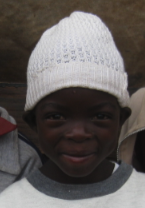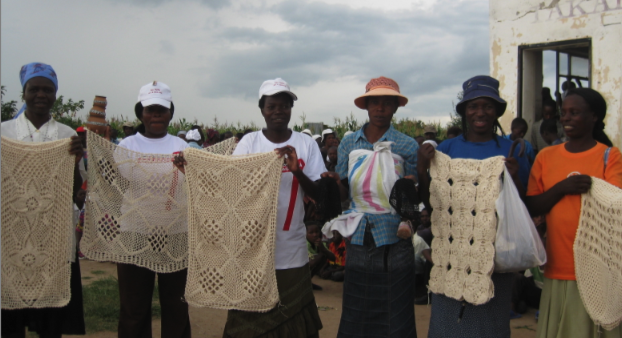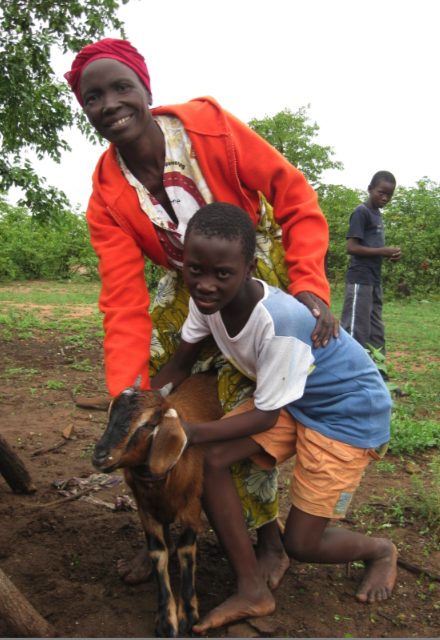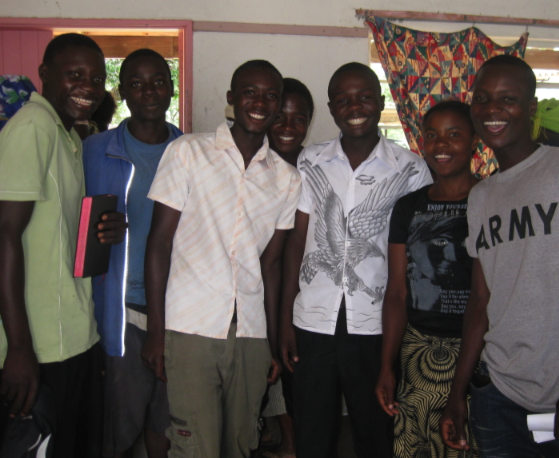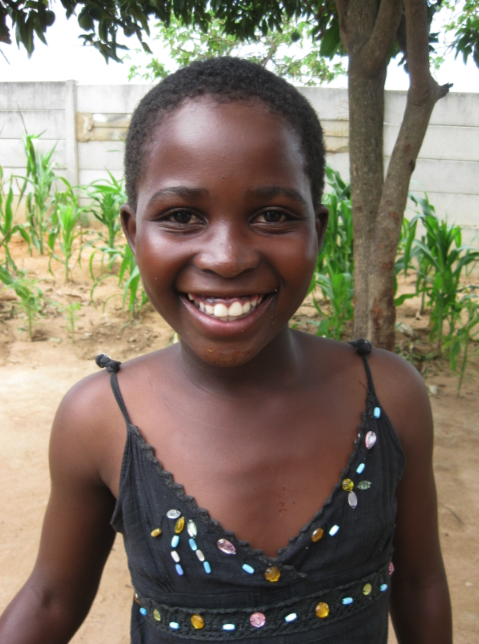Grassroots Organizations Key to Protecting Vulnerable Children in Zimbabwe
Over the last few years, Zimbabwe has often made the headlines with news of hyperinflation, election fraud, and political violence. With the situation now somewhat stabilized, Firelight sent me to visit 22 of our 27 Zimbabwean partners in February 2010.
I asked each organization what challenges they faced during the period of socio-political economic breakdown to understand better how they overcame these challenges to continue their work with vulnerable children.
Developing their programs based on the unique needs and assets of the communities and children that they serve, our Zimbabwean partners engage in a wide variety of activities to support orphaned and vulnerable children in their communities. Many provide access to school and counseling to bereaved children, or meet children’s basic needs. Some organizations teach “life skills” to children who now head households or parenting skills to families reunited with runaway children.
Our partners often help families and communities set up businesses or community gardens so they can support themselves and the increased number of children for whom they care. Some organizations focus on children’s rights advocacy and the protection of abused children.
“We didn’t shut our doors, not even once”
I believe firmly in the efficacy of community-based organizations to mobilize and strengthen their community’s capacity to care for vulnerable children.
Yet even I was surprised by the savvy way our partners continued to provide services to the most vulnerable members of their communities even in the face of extreme hardship and a worsening environment. Most partners told me proudly, “We didn’t shut our doors, not even once.”
As their motivation, many partners highlighted their personal commitment to children and their passion for ensuring children’s well-being. This commitment is paramount in their work and drives them to find whatever means necessary to support children in their community.
For some, this meant traveling at night to communities whose homes were destroyed in Operation Murambatsvina to deliver blankets and food, at great personal risk. For many it meant sharing their own food with others, as food shortages spread across the country.
The commitment of staff and volunteers ensured that organizations continued to provide essential services to vulnerable children and families. Many organizations faced funding shortages, as donors pulled out of Zimbabwe, or took a “wait and see” approach. Staff often worked for several months without pay, in order to continue to serve children more vulnerable than their own.
For many organizations, Firelight’s small grant was their only funding for a period of time and kept programs running.
Deep Roots in the Community
Organizations whose work is most deeply rooted in the communities they are serving, were best able to weather the worsening situation.
Programs owned and led by the community did not collapse, even when organization staff could not reach these communities.
The approach of Firelight’s partners is to foster ownership and leadership, helping communities take responsibility for caring for vulnerable children. During this time of crisis, the efficacy of this model was proved: children continued to be served because community members owned the programs. Trust between our partners and communities was strengthened. The challenging times were withstood through deep community roots.
“Stable, but not yet normal”
In this period of relative calm, partners continue their work. In order to curb hyperinflation, the government has replaced the Zimbabwe dollar with the US dollar. Food and other commodities are now available in the shops, if you have the cash to purchase them. One partner said: “The Zim dollar was useless, but at least you could touch it with your hands.”
This is especially true in rural communities, where school fees now need to be paid with US currency, which presents yet another obstacle to ensuring that children stay in school. It takes a lot of work and multiple transactions for people to obtain a dollar. And prices are high—comparable to those in the US, for many goods.
Partnering with Government
Our partners have emerged from this crisis with stronger networks and relationships. In a country where government services have all but collapsed, many of our partners are playing a facilitative role to enable government departments to do their work; for example, providing rides to social welfare officers to conduct home visits, or loaning staff or computers to assist with the processing of birth registration.
Becoming essential to the operation of government services has afforded our partners a degree of protection from laws that obstruct the ability of NGOs to operate or gather people together. Our partners have responded to the restricted operating space by finding common ground with government employees to work together for the well-being of children.
Having passed through a period of economic and political upheaval, our partners are now operating at a deficit in terms of tools and staff. Many cannot afford to fix broken-down vehicles, curtailing their work with remote communities. Other organizations are not yet able to replace staff who migrated to other countries in search of stability and opportunity. Our partners continue to work with underfunded government departments. Due to persistent civil service strikes, our partners have set up systems to tutor children and push cases of abuse through the court system.
Funding Remains a Challenge
The global economic crisis has come at a difficult time for our partners, hitting many with a 30 to 50 percent budget reduction, as donors’ coffers shrank.
Many of our partners face painful decisions to meet these cuts. Organizations have been forced to reduce the number of children they keep in school, for example, or put certain programs on hold.
Despite the challenges Firelight’s partners have faced over the last few years and the new obstacles they are encountering today, they have not lost their momentum and have kept their operations running the entire time. In the face of extreme circumstances, their resourcefulness and resilience have shone through. These organizations are permanent structures growing stronger to advocate for the needs and rights of children in their communities.
Though many funders decided to pull out of Zimbabwe because of the complexity of funding during a time of economic collapse, Firelight recognized that we needed to continue funding our partners precisely because of the worsening situation. This support proved critical to maintaining services for vulnerable children.
Now our task is to help our partners return to full operating capacity in order to serve the rapidly increasing number of orphaned and vulnerable children in their midst.



